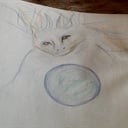What does a person's chronotype determine?
Chronotype refers to the behavioral manifestation of underlying circadian rhythms of myriad physical processes. A person's chronotype is the propensity for the individual to sleep at a particular time during a 24-hour period. 'Eveningness' (delayed sleep period) and 'morningness' (advanced sleep period) are the two extremes with most individuals having some flexibility in the timing of their sleep period. However, across development there are changes in the propensity of the sleep period with pre-pubescent children preferring an advanced sleep period, adolescents preferring a delayed sleep period and many elderly preferring an advanced sleep period.
The causes and regulation of chronotypes, including developmental change, individual propensity for a specific chronotype, and flexible versus fixed chronotypes have yet to be determined. However, research is beginning to shed light on these questions, such as the relationship between age and chronotype. There are candidate genes (called clock genes) that exist in most cells in the body and brain, referred to as the circadian system that regulate physiological phenomena (hormone levels, metabolic function, body temperature, cognitive faculties, and sleeping). With the exception of the most extreme and rigid chronotypes regulation is likely due to gene-environment interactions. Important environmental cues (zeitgebers) include light, feeding, social behavior, and work and school schedules.
More Info:
en.wikipedia.org














